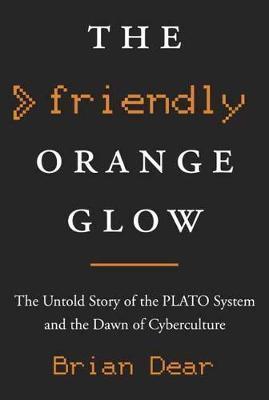Thom reviewed The Friendly Orange Glow by Brian Dear
Review of 'The Friendly Orange Glow' on 'Goodreads'
3 stars
Started this thick volume on April 1, and had to check twice to make sure I wasn't being fooled. This is the story of computing both ahead of it's time and mostly ignored by the mainstream. The information is interesting, if too complete, and the history scattered at times.
The first 200 pages are an excellent history of the PLATO (Programmed Logic for Automatic Teaching Operations) terminal and the principal figures. Just the right amount of technical detail balances with history and even philosophy (of education). The next few hundred pages rambles some, covering a lot of territory. Topics such as games and network communities are discussed with relevance to PLATO. Firm editing and a few less anecdotes may have helped here.
The final section of the book covers the inevitable downfall of the company and the terminal, for a variety of reasons. The investments in Russia and Iran were …
Started this thick volume on April 1, and had to check twice to make sure I wasn't being fooled. This is the story of computing both ahead of it's time and mostly ignored by the mainstream. The information is interesting, if too complete, and the history scattered at times.
The first 200 pages are an excellent history of the PLATO (Programmed Logic for Automatic Teaching Operations) terminal and the principal figures. Just the right amount of technical detail balances with history and even philosophy (of education). The next few hundred pages rambles some, covering a lot of territory. Topics such as games and network communities are discussed with relevance to PLATO. Firm editing and a few less anecdotes may have helped here.
The final section of the book covers the inevitable downfall of the company and the terminal, for a variety of reasons. The investments in Russia and Iran were unpredictably poorly timed, the overpricing of new hardware could have been avoided, but in reality the juggernaut of personal computers would have been impossible to avoid. The author clearly has some strong feelings about this topic. The book then concludes with some short bios of famous names connected to PLATO and an extensive bibliography and index.
I liked it and learned a lot. It is comparable to Stephen Levy's [b:Hackers: Heroes of the Computer Revolution|56829|Hackers Heroes of the Computer Revolution|Steven Levy|https://images.gr-assets.com/books/1435697935s/56829.jpg|1407224] and Walter Isaacson's [b:The Innovators: How a Group of Hackers, Geniuses and Geeks Created the Digital Revolution|21856367|The Innovators How a Group of Hackers, Geniuses and Geeks Created the Digital Revolution|Walter Isaacson|https://images.gr-assets.com/books/1410191571s/21856367.jpg|41129225].

